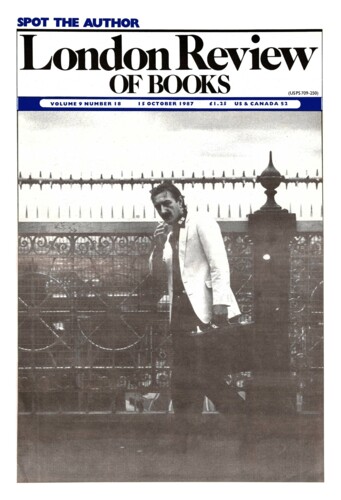In their fathers’ power
Jasper Griffin, 15 October 1987
Three substantial books on the world of ancient Rome, each in a different idiom. A critic of G.K. Chesterton said that he had a style in which it was impossible to tell the truth; in what style, indeed, can truth be told? Perhaps that aim is altogether too high, and the question should be ‘What style does not condemn us to tell lies?’ To put it in a friendlier way, which sort of sentence do you enjoy reading? There is the Gallic style: ‘The genealogy of ancient education was as follows: from culture to the will to culture, from there to the school, and from the school to the scholastic exercise as an end in itself.’ And: ‘It does not follow that law actually governed daily life in Rome. Legalism merely introduced into the chaos of Roman affairs an additional complication, not to say a weapon: chicanery.’ And: ‘Smiles are rare in ancient art. Tranquillity was bought at the price of tension and renunciation – hallmarks of the ancient world as much as of the world of the samurai or of Queen Victoria.’ And: ‘The puritanism of the upper class did not rest on sexuality: it rested on sexuality as a possible source of moral contagion. For sexual indulgence could erode, through the effeminacy that could result from excessive sexual pleasure with partners of either sex, the unchallenged superiority of the well-born.’’

